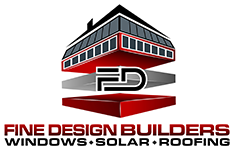What You Need to Know About Commercial Solar Installation
Commercial solar installation is a great way to produce clean, green energy for your business. It’s also a great way to cut your energy costs. The costs and benefits are great and the investment will pay for itself quickly. The next step is determining whether you can get planning permission for the installation. There are several factors to consider, including the age and design of your building. Fortunately, most municipalities are pro-solar and are willing to guide you through the process. Learn more.
Costs
There are a number of factors that go into determining the cost of commercial solar installation. One of the most important is the size of the solar system. Commercial systems can range in size from just a few kW to a full MW. The size of the system depends on a number of factors, including the amount of space available, the electrical load of the business and the expected electricity consumption.
Government incentives play a large role in making commercial solar systems cost-effective. Federal and state governments provide attractive rebates for solar installations, making these systems an attractive investment for businesses of all sizes. In addition, manufacturers like LG offer warranties on their commercial solar panels of up to 25 years. Businesses can also take advantage of a program offered by their local utility provider or state that can reduce their commercial solar installation costs by 10 to 20 percent.
Benefits
Investing in a commercial solar installation will reduce the cost of electricity to your business. Electricity is one of the most significant overhead costs for business owners. Rate fluctuations can make it hard to manage cash flow. Commercial solar installations can help you lower your bill by as much as 50%. Not only will you save money, but you’ll also reduce your dependence on the commercial power grid.
One of the greatest advantages of solar power is its stability. Commercial solar installations allow you to lock in rates for up to 25 years, which will save you money on your monthly bill. Unlike other forms of power, solar power has a low price volatility, which means there’s no risk of supply shortages or price hikes. Also, a commercial solar installation can increase the value of your property.
Requirements
There are many factors to consider when deciding on the right solar system for your business. For starters, you must be in compliance with local codes and zoning laws. Then you must evaluate your property to determine the optimal placement and design of your solar panels. This includes doing a shade analysis and performing topographical and geological surveys. In addition, formal plans are required, which will detail how your panels should be arranged and how you will construct the entire system.
Secondly, you should know what kind of interconnection agreements are required by your local utility. This is because a solar installation requires the use of cabling and mounting infrastructure. The overall cost of an installation will depend on these costs. You should also determine what percentage of energy your business will use before you begin your solar project. If your business is using solar as the sole source of electricity, you should also consider putting up solar batteries to store the energy that will be generated by the system.
Phases
There are four phases involved in the process of commercial solar installation. These phases are evaluation, planning, design, and construction. The first phase includes assessing your site to ensure it is suitable for solar panels. This step includes reviewing topographical maps and geological surveys. The next phase involves formalizing your plans and design. These designs will include details such as the placement of solar panels. These plans can also include a carport to provide shade.
A properly installed commercial solar system can produce clean energy for decades. However, it is important to maintain these systems properly. Proper maintenance will help them last for decades.
Tax breaks
Tax breaks for commercial solar installation are available in several states, including New York. Under the Internal Revenue Code, companies can claim up to 30% of the cost of solar panels and related equipment. The credits vary by state and are meant to encourage solar-powered businesses. In addition to state incentives, tax breaks can also be earned from federal programs that support energy efficiency and renewable energy.
The federal government recently approved a reconciliation bill that includes a 30% tax credit for solar energy systems. This tax break has no cap and will apply to both standalone and co-located systems. Additionally, the federal tax credit will also be available for energy storage devices like battery storage and EV chargers. However, the tax credit cannot be claimed until the 2023 or 2024 tax filing. For that reason, many solar companies recommend that customers install solar arrays early so that they can take advantage of this tax break. Browse next article.
